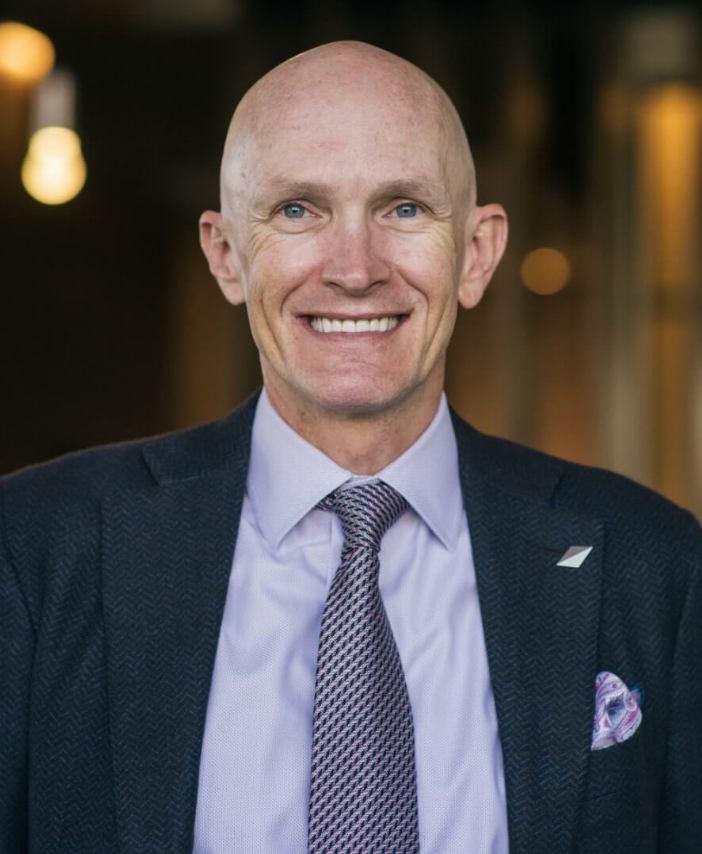Developer says Colorado Springs mayoral race will cost $1 million, supports Wayne Williams
COLORADO SPRINGS, Colo. (KRDO) -- 13 Investigates has uncovered ties between the most powerful developer in the area, Norwood Development Group, and the mayoral race in Colorado Springs.
Norwood Development Group, which owns is behind a confidential plan to pump $1 million into candidate Wayne Williams' campaign.
Banning Lewis Ranch, The Olympic and Paralympic Museum, The "America the Beautiful" Park, Wieidener Field, and Interquest Parkway are some of the properties behind the Norwood name.
While businesses donating to candidates is not uncommon nor illegal, how much influence this developer may have had on Williams and even the current mayor before this is the center of the investigation.
Wayne Williams currently sits on City Council. Last month - Williams and Mayor John Suthers, who has endorsed him, helped to pass a city law that works in Norwood Development's favor making it harder for new developers to build in the city limits.

Founder, Executive Chairman

CEO
Banning Lewis Ranch, the Olympic and Paralympic Museum, The America the Beautiful Park, Wiedner Field, and Interquest Parkway Shopping Center are the properties behind the Norwood name. The company owns 85% of all developable land in Colorado Springs.
An email obtained by 13 Investigates sheds light on Norwood Development's plan to confidentially fund mayoral candidate Wayne Williams' run for mayor. David Jenkins, who owns Norwood Development Group, told business partners and political allies that the race will cost $800,000 to $1 million.
"The Mayor's race is in a dogfight with 3 or 4 of the 12 running," the email states. "It is absolutely imperative that we support and elect Wayne Williams as our next mayor."
It also asks each person to give Williams $1,500 in donations and points them on how to donate $10,000 to a confidential fund called "Colorado Dawn." The fund funnels campaign donations in a way where the contributor isn't identified.
In February, the City Council voted 5-4 on a water ordinance to address growth and water conservation. It prevents new large-scale communities from being built unless Colorado Springs Utilities' water supply has at least a 128% surplus for residents. Current Mayor John Suthers and Williams both voted for it.
"When you add in the Colorado River and the possible reductions that we may get, that means you have to be proactive. And so looking at it, we had a requirement to have enough water for the foreseeable future," Williams said.
However, the controversy arises because the ordinance excludes Norwood Development from the rule because they already own land, meaning they can build without the water restrictions new developers now face.
At least one city councilor believes Norwood influenced the ordinance.
"It's inordinate the amount of influence that I believe Norwood has shown in this particular development," said Councilman Bill Murray.
Before the ordinance passed, a law firm hired by Norwood Development Group brought forth a proposal to stop all new development until Banning Lewis Ranch was built out. Email and calendar records show Norwood met with the city in September 2022 about the voter proposal. The firm was pushing to get the issue on the ballot for voters to decide.
"I had a very adverse reaction to that because it will take us 40 to 50 years to build out Banning Lewis Ranch and the cities constantly and acquiring more water," Suthers said.
Williams is also the Colorado Springs Utilities Board president.
And all of a sudden, in this document, for the first time, I read utilities saying we currently have enough water for 670,000 people. And, you know, they're estimating how much water that would take there that I remember saying to Mr. Green, I said, that's not the number that I've heard from utilities for several years.
Mayor John Suthers
Because of the concerns with Norwood's proposal and the dire drought conditions on the Colorado River, Williams directed Colorado Springs Utilities to further study the issue and draft a new policy.
So first, I did not bring forward what Norwood pushed for, which was a ban on Annexations until we have enough water? Instead, I turned to the professional staff of Colorado Springs utilities to say, What do you recommend? And their recommendation was that we adopt a formal buffer. I believe that's in the best interest of all of Colorado Springs.
Candidate for Mayor Wayne Williams
Williams says conversations about the water issue occurred around September when the federal government announced challenges and potential curtailments with the growing water crisis at the Colorado River. He says CSU drafted an ordinance within weeks of Norwood proposing to go to the voters with a more strict rule.
We also asked Mayor Suthers why there was a rush to push the controversial water ordinance forward.
"I wanted to get it done before I left office. What CSU was saying to me is we need to slow down," Suthers explained.
Mayor Suthers told 13 Investigates he doesn't know if Norwood influenced it but that he knows the ordinance came from CSU.
Suthers also spoke with us about his relationships and outings with several wealthy developers in the city. He says he's golfed with executives from La Plata Development, attended a birthday party for Norwood's owner at the Broadmoor, and has been in private meetings with various developers.
"Some of them, I would say, are I would call friends, certainly acquaintances. Not my best friends, but certainly acquaintances. But even my best friends know. Public interest comes first. That's my job," Suthers said.
Williams admits he's also friends with developers in the city, adding that he's friends with many people in various professions.
We asked him why the Norwood Development group says it's "absolutely imperative" that he is our next mayor.
"Norwood, The firefighters, a host of people, believe that I will be best to lead the city forward," Williams said.
13 Investigates: "If someone reads this email and they say it looks like Norwood wants to buy Wayne as the mayor, how would you respond to that?"
Williams: "No one can buy Wayne Williams."
Williams is adamant his efforts behind the new ordinance are pure and are in the best interest of Colorado Springs taxpayers.
"I never want to be in a situation where when I turn on the tap, I'm not sure if there's water that comes out," Williams said.
We called David and Chris Jenkins on Monday seeking an interview.
"I have an x-ray on my ankle right now. But I'd be happy to call you back." Chris Jenkins said over the phone on Monday.
After that call, we called, texted, and emailed numerous times, but the Norwood Development Group ignored our requests and deadlines.
Eventually, Norwood Development Group told us on Wednesday evening that they had nothing to say.
Why the recently passed water ordinance could be crucial when it comes to affordable housing
When the Colorado Springs Council narrowly passed the 128% water ordinance rule back in February, they said the main goal was smart water planning for the future. Whether intentional or not, experts said the ordinance may raise home prices in Colorado Springs.
With the water ordinance blocking city annexations that would push the water surplus under 128%, it severely limits the number of new builds that can go up in the city on undeveloped land.
Right now, 85% of the “future growth capacity of the Pikes Peak region” is owned by Norwood. That means, 85% of the future new homes that could be built in Colorado Springs without being limited by the water ordinance would come from a single developer.

That leaves 15% for the other developers in town to build new homes on. Unfortunately, experts said that land is simply not as profitable as the large, consecutive land in the currently annexed Banning Lewis Ranch area.
“There are economies of scale for builders,” Tatiana Bailey, a Colorado Springs economist said.
Bailey explained that developers building large neighborhoods can buy their materials in bulk, making it more cost-effective. This differs from smaller neighborhoods that can be built on the remaining 15%.
“Very, very different than building four homes here, one home there, it's much more expensive basically for the builder,” Bailey said.
Bailey said the builder then passes those costs onto the consumer and that jacks up home prices even more.
Data collected from the Housing Opportunity Index, which shows the percentage of homes sold in a community that is affordable to the median household income, indicates Colorado Springs is getting more expensive to live in.
In Q3 of 2019, the housing opportunity index was 74%. Meaning, 74% of people in Colorado Springs could afford a home at the median household income. Today, that index is down to 18%.
“I couldn't believe it!" said Bailey.
That means, less than one in five people in Colorado Springs can afford a home at the median income.
Williams voted for the 128% water ordinance but acknowledged it will affect home prices.
“It does have an impact because part of pricing is a law of supply and demand,” Williams said.
The good news is, for right now, the 18,000 acres in Banning Lewis Ranch that is already annexed, undeveloped, and owned by Norwood, will likely meet the demand for the foreseeable future.
Randy Case, the chair of the Pikes Peak Association of Realtors, said the pricing won’t be affected until the current supply runs out.
“We've got a supply of land already approved and ready to go in many places in this county that won't hold up the housing," explained Case. "The 128% regulation is more about annexations and the expansion of city boundaries into the unincorporated county in which case that will have a longer-term conversation people will need to have."
Further, Case said he doesn’t believe Norwood would raise the prices on the new builds since they have an obvious interest in selling them out.
“I don't believe generally that they would think to hurt themselves by raising the price so high that they can't sell something."
Aside from pricing and annexation, Colorado Springs Utilities has always maintained the water ordinance was about just that. Water.
“You've got to have water to have houses. If there's a crunch in water then that's going to affect us all," Case remarked.
Springs Utilities said this ordinance is necessary to properly plan for potential curtailments. Seventy percent of the city’s water comes from the Colorado River, which is facing a 22-year drought.
This, among other water-related factors, is why the utility company said this ordinance was not a want, but a need.
The original proposal by Springs Utilities was a 130% surplus, but 128% was the number settled on.
“It gives us a definition of the surplus that has been in city code for years," Abby Ortega, general manager of infrastructure and resource planning for Colorado Springs Utilities, said.
Ultimately, Bailey said the sweet spot we should be striving for is water conservation and market competition.
"If you put those two things together and you have the profit incentive through perfect competition and you have have really good regulation that's where you have the best of both worlds. That's where you really start to move the needle."
Do you have a tip you want 13 Investigates to look into? Email us at 13investigates@krdo.com




